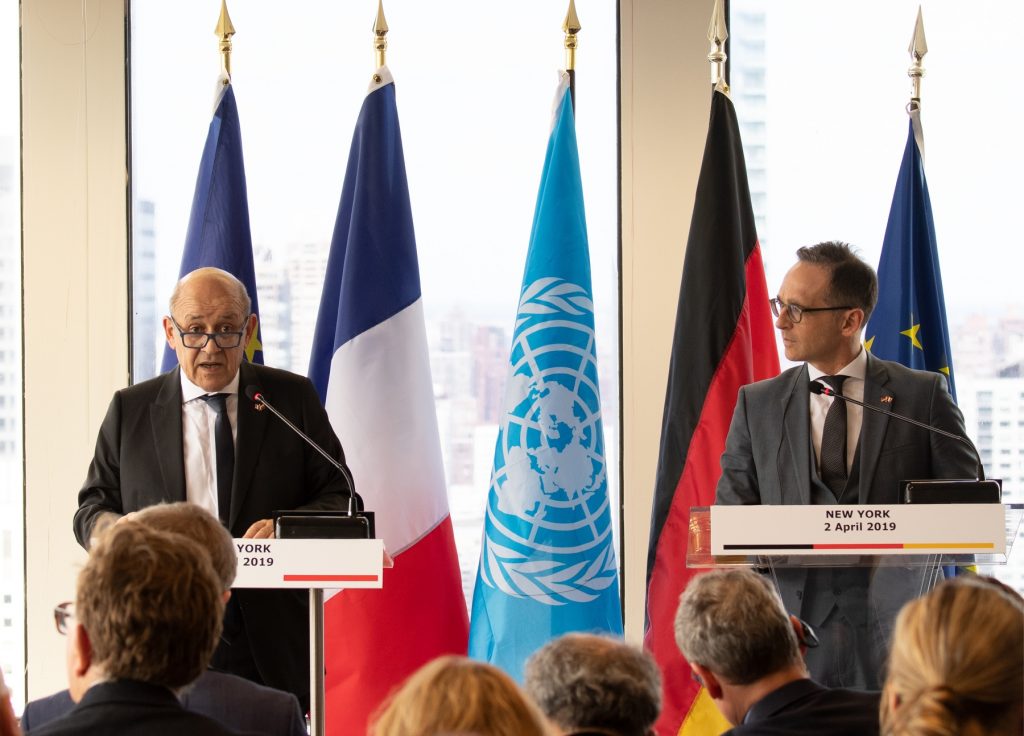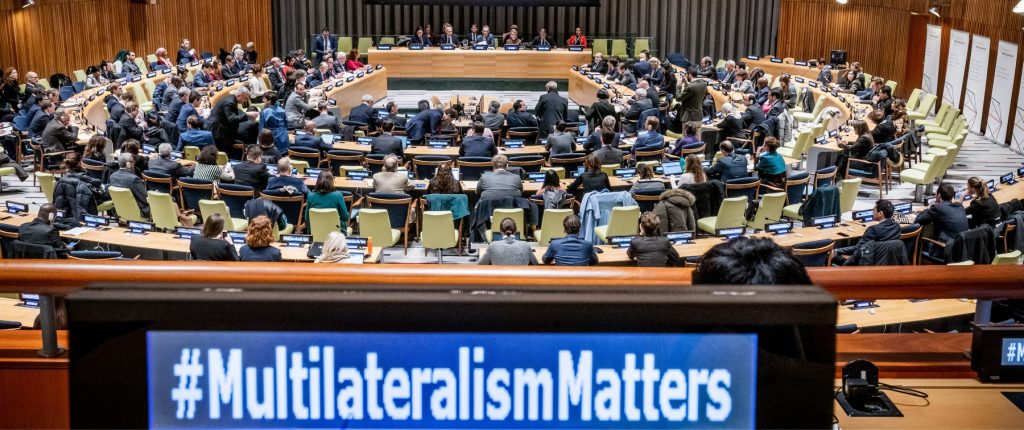
THE UNITED NATIONS SECURITY COUNCIL
THE SECURITY COUNCIL IS ONE OF THE PRINCIPAL ORGANS OF THE UNITED NATIONS (ARTICLE 7 OF THE UN CHARTER).
The Security Council is one of the principal or- gans of the United Nations (Article 7 of the UN Charter). It bears primary responsibility for the maintenance of international peace and security. The Security Council comprises 15 members. Article 23 of the Charter of the United Nations designates five states as permanent members, namely China, France, the Russian Federation, the United Kingdom and the United States. The General Assembly elects the ten other members for a term of two years. By means of five regional electoral groups, representation of all parts of the world is ensured: three seats go to African states, two seats to Asian states, one seat to a member of the Eastern European Group, two seats to the Latin American and Carribean states and two seats to the Western European and Others Group, the “Others” being Canada, Australia and New Zealand. Each year five of the elected members are replaced. Their term of office ends on 31 December of the second year.
In 2020 the following ten countries are represen- ted on the Security Council as non-permanent members: Belgium, the Dominican Republic, Indo- nesia, South Africa and Germany until the end of 2020, Estonia, Niger, St. Vincent and the Grena- dines, Tunisia and Vietnam until the end of 2021.
A BROAD MAJORITY OF UN MEMBER STATES SUPPORT REFORM OF THE SECURITY COUNCIL AND ITS ADAPTION TO THE GEOPOLITICAL REALITIES OF THE 21ST CENTURY.
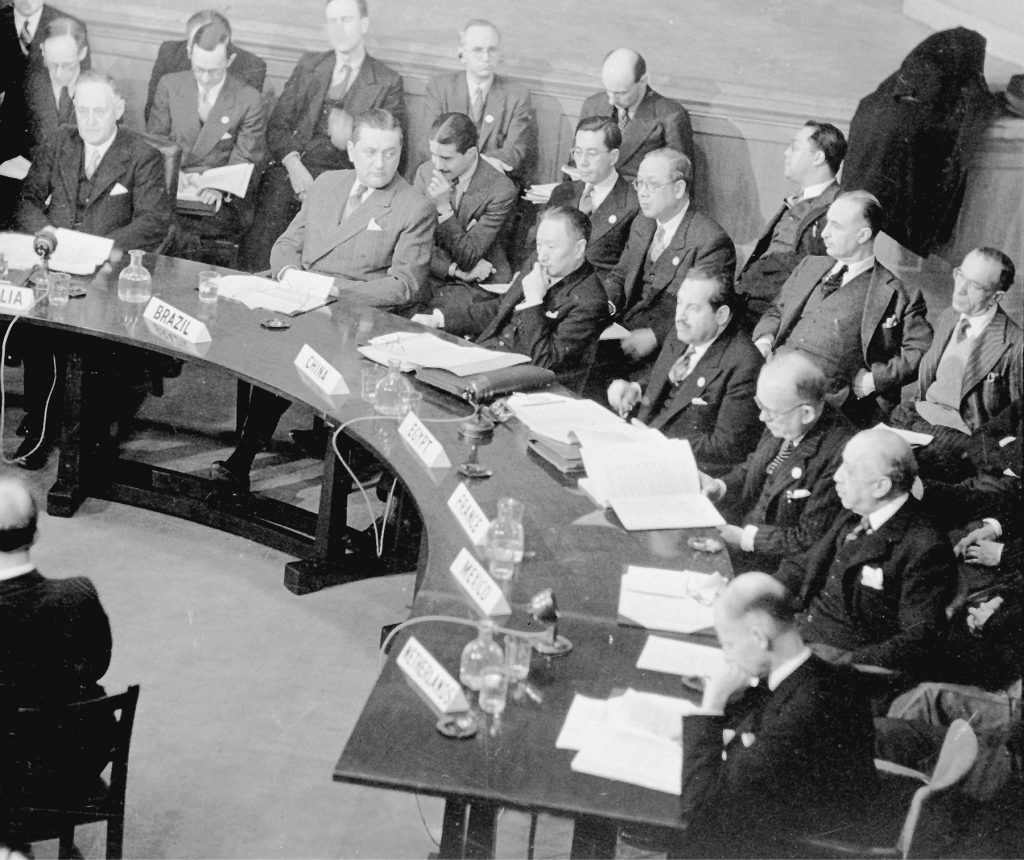
UNDER ARTICLE 27 OF THE UN CHARTER, EACH MEMBER OF THE SECURITY COUNCIL HAS ONE VOTE.
Angenommen wird eine Resolution mit neun Stimmen, soweit keines der fünf ständigen Mitglieder (P5) ein Veto einlegt; bei Verfahrensfragen greift das Veto nicht. Bei der Abstimmung gibt es für alle Mitglieder die Möglichkeit sich zu enthalten. Stimmenthaltung gilt nicht als Veto. Damit gewährt die VN-Charta den ständigen Mitgliedern eine herausragende politische Stellung, die ihnen im gesamten System der Vereinten Nationen bedeutenden Einfluss verleiht. Der Sicherheitsrat trifft sich zu Konsultationen. Ziel dieses Verfahrens ist es, Übereinstimmung aller Sicherheitsratsmitglieder zu erreichen und Kampfabstimmungen zu vermeiden. Letztere werden in der Regel als „ultima ratio“ eingesetzt, wenn Gegensätze nicht zu überbrücken sind, oder aus taktischen Gründen, um bestimmte Sicherheitsratsmitglieder – z. B. eine Veto- Macht – öffentlich zu isolieren.
UNDER THE UN CHARTER, THE SECURITY COUNCIL IS THE ORGAN OF THE UNITED NATIONS CHARGED WITH THE TASK OF DETERMINING THE EXISTENCE OF ANY THREAT TO THE PEACE AND RECOMMENDING OR DECIDING WHAT MEASURES ARE TO BE TAKEN TO RESTORE PEACE AND SECURITY.
Under Article 24 of the UN Charter, primary responsibility for the maintenance of international peace and security rests with the Security Council. According to the Charter, member states are obliged to accept and implement Council decisions. Since the Security Council meets almost continuously, it can respond to crises as soon as they erupt. According to Article 25 of the UN Charter, the decisions of the Security Council on these matters are binding on all member states of the United Nations, and it is the only organ which can enact decisions with binding effect.
THE CHARTER REQUIRES MEMBER STATES TO ACCEPT AND CARRY OUT THE DECISIONS OF THE SECURITY COUNCIL.
COMPOSITION AND FUNCTIONS OF THE UN SECURITY COUNCIL
FOR THE PERFORMANCE OF ITS TASKS IN THE FRAMEWORK OF GLOBAL PEACEKEEPING, THE SECURITY COUNCIL MAY AVAIL ITSELF OF THE FOLLOWING METHODS AND PROCEDURES IN PARTICULAR:
» pacific settlement of disputes in accordance with Chapter VI of the UN Charter
» authorizing regional organisations to take enforcement measures
» enforcement measures under Chapter VII of the UN Charter
» operations for the maintenance of peace and security (peace missions)
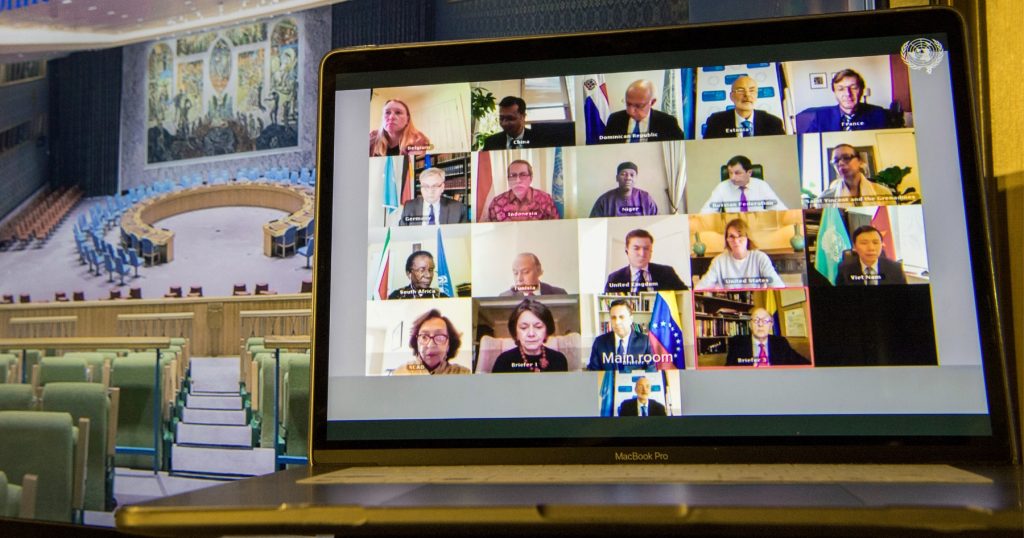
THE RIGHT OF THE SECURITY COUNCIL TO IMPOSE ENFORCEMENT MEASURES FORMS THE CORE OF THE COLLECTIVE SECURITY SYSTEM OF THE UNITED NATIONS.
In the event of threats to the peace, breaches of the peace or acts of aggression, it is the sole prerogative of the Security Council to order enforcement measures that bind all UN members. By means of both non-military and military joint actions by UN members, any potential aggressor is to be deterred from threatening or using force to pursue its interests. The Security Council’s powers are limited to the establishment and maintenance of international peace and security. The Security Council does not possess comprehensive jurisdiction to resolve every problem of global significance. The Security Council’s effectiveness depends on the willingness and ability of the member states to implement its decisions or make resources avai- lable for their implementation. If its decisions are not acted upon, the Security Council has several options. It may refer the matter to the International Court of Justice by requesting an advisory opinion.
In the event of a threat to the peace, a breach of the peace or an act of aggression by a country, it may also avail itself of other means, such as the imposition of economic and other sanctions. In the cases of the former Yugoslavia and Rwanda, the Security Council appointed international criminal tribunals. The Security Council may deploy UN peace missions. It may authorize troops to use armed force under the operational command of member states or regional organisations. The use of force, however, remains the last resort, to which the Security Council never has recourse unless and until all peaceful means of settling a dispute have been exhausted.
THE ENFORCEMENT OF UN SANCTIONS IS ULTIMATELY A MATTER FOR THE MEMBER STATES.
If sanctions are imposed, the Security Council appoints a committee whose task is to oversee member states’ observance of the sanctions regime.
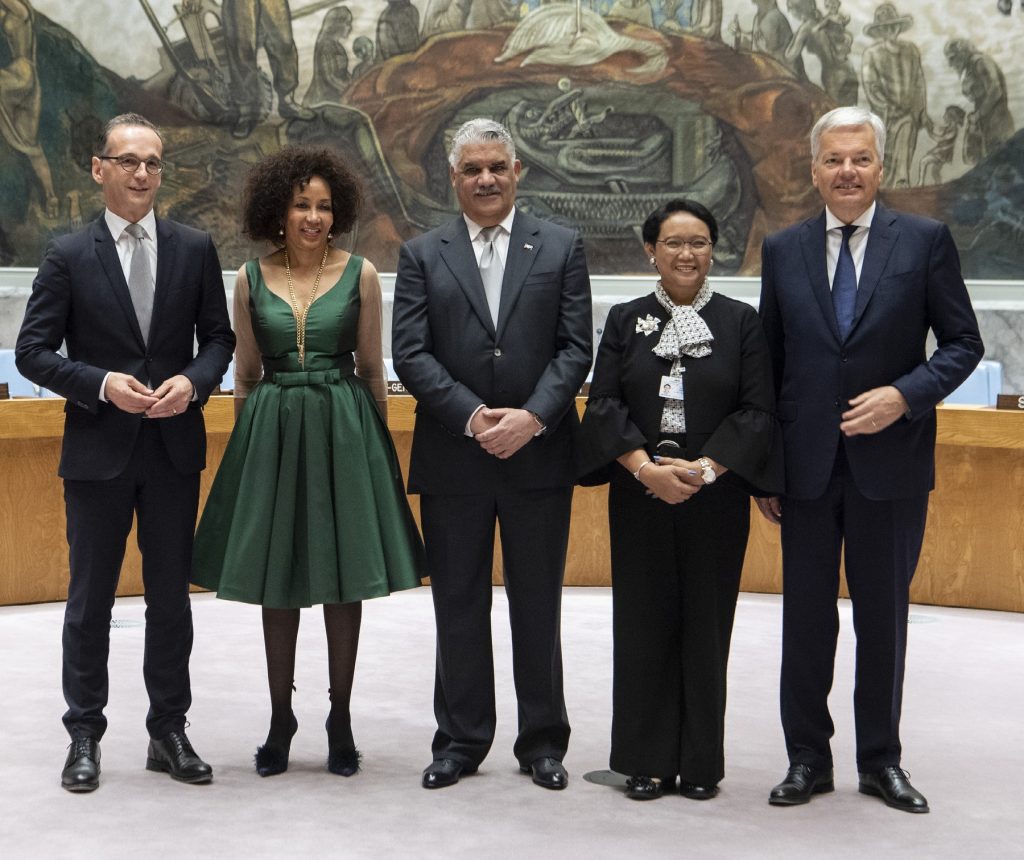
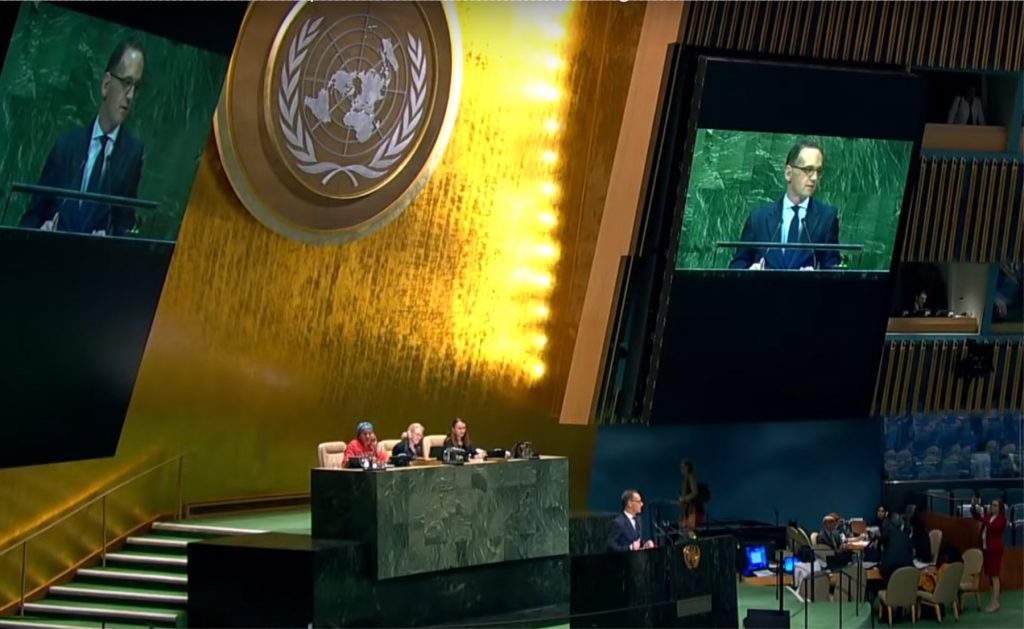
GERMANY IN THE UNITED NATIONS SECURITY COUNCIL
On 8 June 2018, the Federal Republic of Germany was elected for the sixth time as a non-permanent member of the United Nations Security Council. Membership of the Security Council increases the potential influence of German foreign policy. We are ready to embrace the responsibility this brings and to make our contribution to international peace and security.
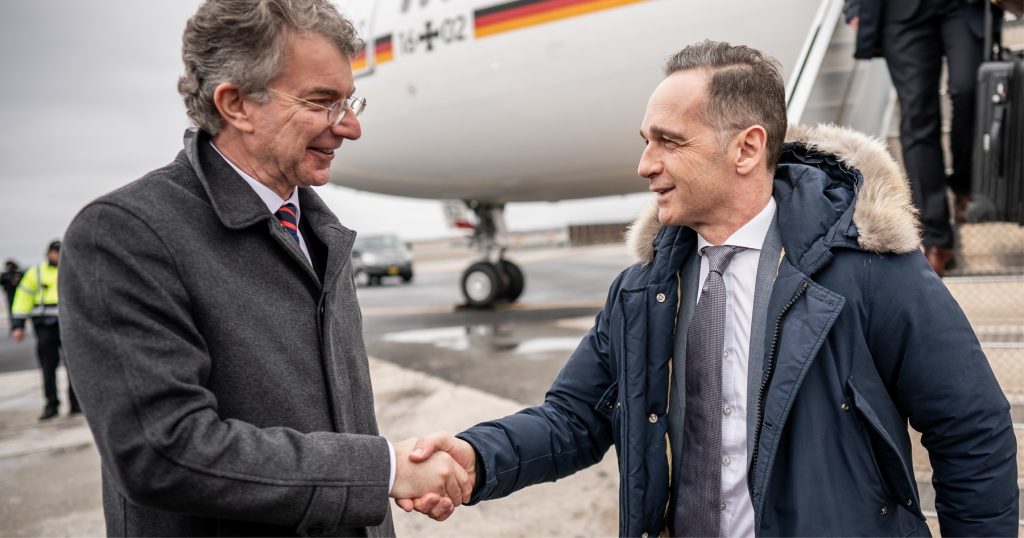
GERMANY’S AIMS AND PRIORITIES FOR ITS TERM ON THE SECURITY COUNCIL
In the Security Council, as in other forums, we intend to contribute to the preservation of the multilateral rules-based order. Participation in the work of the Security Council primarily means having our say and taking decisions on all crises on the Security Council agenda. We intend to play our part in comprehensive and foresighted ma- nagement of these crises and to help ensure that stalemates can be broken.
CHARTER OF THE UNITED NATIONS:
CHAPTER V: THE SECURITY COUNCIL ARTICLE 23
(1) The Security Council shall consist of fifteen Members of the United Nations. The Republic of China, France, the Union of Soviet Socialist Republics, the United Kingdom of Great Britain and Northern Ireland, and the United States of America shall be permanent members of the Security Council. The General Assembly shall elect ten other Members of the United Nations to be non- permanent members of the Security Council, due regard being specially paid, in the first instance to the contribution of Members of the United Nations to the maintenance of international peace and security and to the other purposes of the Organization, and also to equitable geographical distribution.
(2) The non-permanent members of the Security Council shall be elected for a term of two years. In the first election of the non-permanent mem- bers after the increase of the membership of the Security Council from eleven to fifteen, two of the four additional members shall be chosen for a term of one year. A retiring member shall not be eligible for immediate re-election.
ARTICLE 24
(1) In order to ensure prompt and effective action by the United Nations, its Members confer on the Security Council
PRIMARY RESPONSIBILITY FOR THE MAINTENANCE OF INTERNATIONAL PEACE AND SECURITY,
and agree that in carrying out its duties under this responsibility the Security Council acts on their behalf.
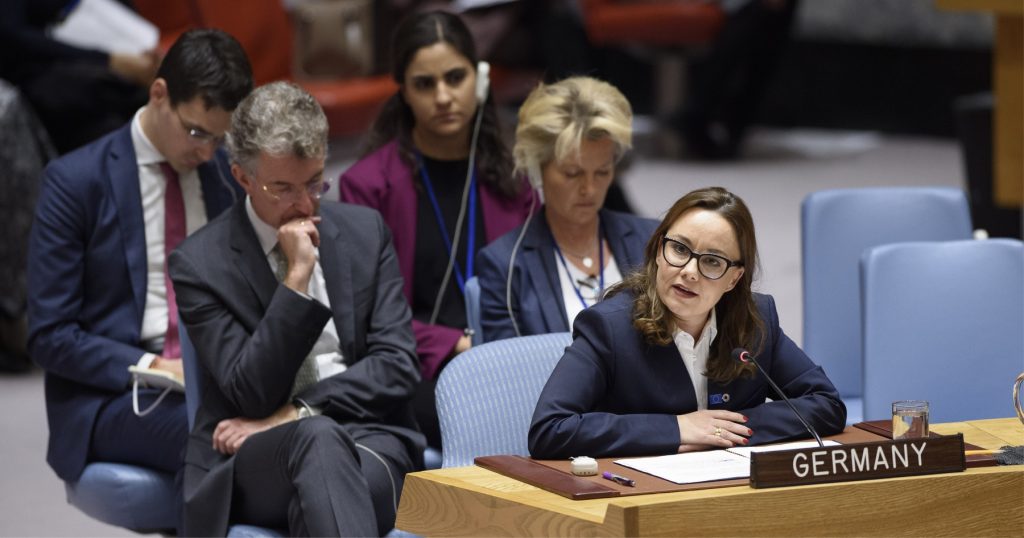
Besides dealing with specific crises and monitoring existing mission mandates, we shall use the forum to develop existing conceptual approaches to particular thematic areas.
IN OUR PREVENTION EFFORTS AND IN OUR QUEST FOR COMPREHENSIVE, FORESIGHTED CRISIS MANAGEMENT, WE INTEND TO FOCUS ESPECIALLY ON THE FOLLOWING TOPICS:
» WOMEN, PEACE AND SECURITY
The participation of women in peace processes as a key to sustainable peacebuilding, but also the prevention of sexual violence in conflicts.
» HUMAN RIGHTS AND SECURITY
The significance of human rights violations as conflict catalysts.
»CLIMATE AND SECURITY
The conflict potential of climate disasters and long-term climate change.
» HEALTH AND SECURITY
The conflict potential of epidemics and pandemics.
» DISARMAMENT AND NON-PROLIFERATION
Substantial progress in disarmament, arms control and non-proliferation.
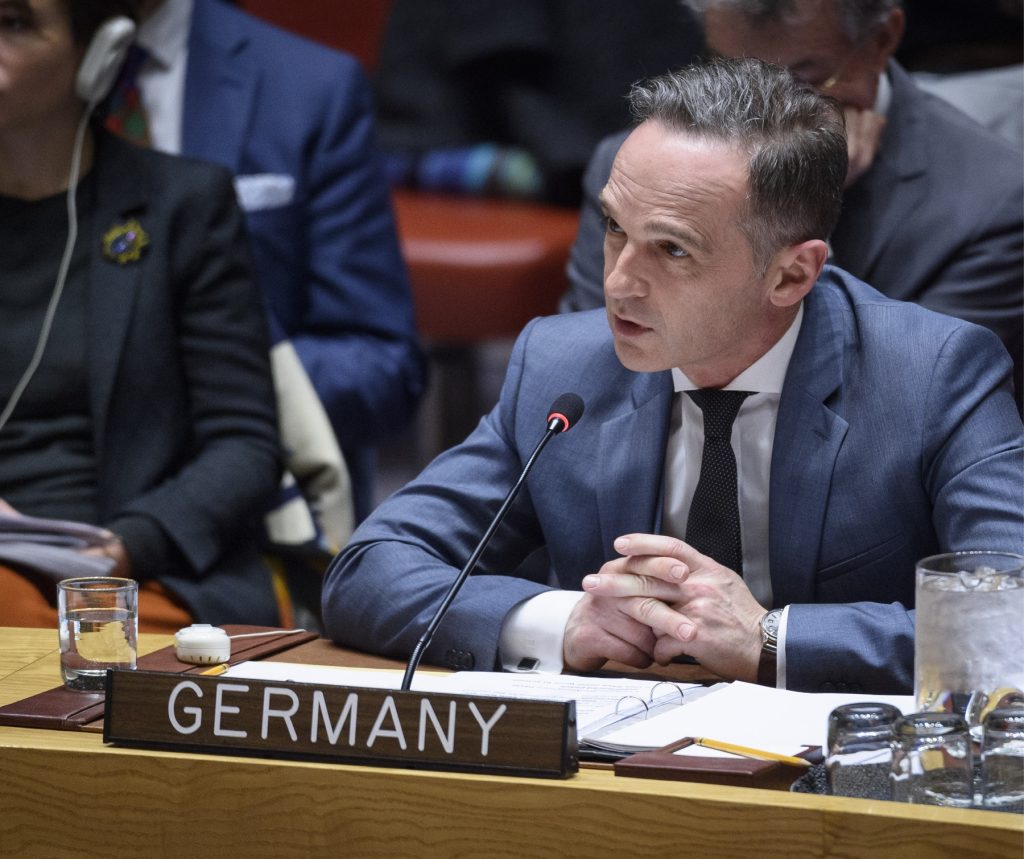
GERMANY IS PURSUING A COMPREHENSIVE APPROACH TO CONFLICT RESOLUTION,
designed to strengthen peacekeeping as a multilateral instrument of conflict resolution but also focused on the transition to stabilization, in other words the goal of sustainable peacebuilding. Crisis prevention and stabilization are key components of Germany’s foreign policy, not only in the Security Council, and Germanys approach is entirely in tune with the ideal of sustaining peace that is also proclaimed by UN Secretary-General António Guterres. Germany intends to be a European voice in the Security Council and to guarantee European continuity in the business of the Security Council.
EU SOLIDARITY IS ONE OF OUR MAJOR INTERESTS IN NEW YORK TOO.
